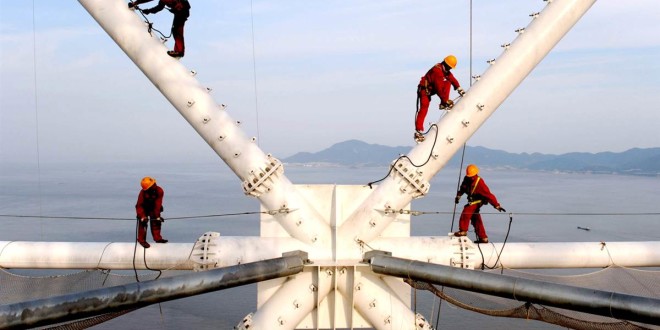It prevails a world led from the cloud by large corporations that far from stopping the concentration of wealth they blow it out of proportion. A narrow fraction of the world’s population profits in this process at the expense of 90% of the vast majority. A disastrous and unsustainable path that punishes humanity and affects the functioning of the planet. We are on the verge of changing course and way of functioning. The challenge is enormous since it will be necessary to dismantle the concentration and establish multiple paths of peace and equity. It will be necessary to expand the …
Read More »-
Leveraging democratic powers
In a world that has concentrated decision-making power in a few hands, it is essential to strengthen genuinely democratic powers. There are a dozen large corporations operating in the clouds with the ability to disproportionately influence most of the will in all latitudes. Large conglomerates in the Western world as well as in the Eastern world operate above national regulations. Their owners impose destructive trajectories with their power at the global and national level. The concentrating process was consolidated in a few decades and is reproduced without being transformed. It raises an infinite number of conflicts of content and non-payment …
Read More »
-
A WASTELAND THEY CALL PEACE
In Ukraine we cannot expect a lasting and true peace, but a frozen war perhaps celebrated according to the rites of a bloody carnival. But it will be, if it happens at all, at least a truce. The title of this note is a copy of a well-known phrase attributed to the Roman historian Tacitus: “Rapine, murder and robbery are called by a false name governing, and where they create a desert, they call it peace”.[1] It applies especially to the war in Ukraine and the negotiations between two dictators – the experienced Russian and the improvised American – with …
Read More »
-
Who’s who in tax havens?
About a third of global private wealth is hidden in these dens. They house the companies that allow the richest people in the world to control their fortunes by evading social responsibilities, while the middle class and the poor have to pay their taxes. The peripheral countries are the main victims of capital flight. One of the faces of globalization are “tax havens”, created to guarantee tax evasion and money laundering. According to Oxfam, a tax haven is a territory where fiscal taxation is very low or practically zero and transactions and operations of almost any kind can be carried out …
Read More »
-
Initiatives
Francis’ message with the Popular Movements at the Vatican – September 20, 2024 Countries can raise $2 trillion by copying Spain’s wealth tax, study finds Countries can raise $2 trillion by copying Spain’s wealth tax, study finds María Pilar by Teresa Parodi
Read More »
-
Reflections
About the need to institutionalize a space for debate, participation, and horizontal construction The populist experience itself demonstrated, by its absence, the need to institutionalize a space for debate, participation, permanent horizontal construction, so that the different sectors that compose it can find a space to settle their differences that, without opposing the minimum agreements, will appear throughout the administrations. Carlos Andujar About the impact of video games Video games allow people to live experiences, enjoy activities, while individuals immerse themselves in a hypnotic state, feeling like individual and meritocratic heroes who have the courage to face the conflicts that …
Read More »
 Opinion Sur
Opinion Sur







